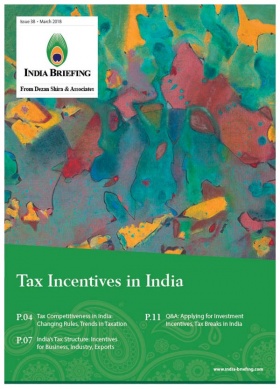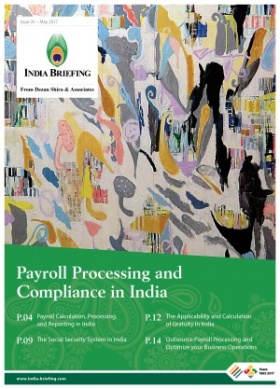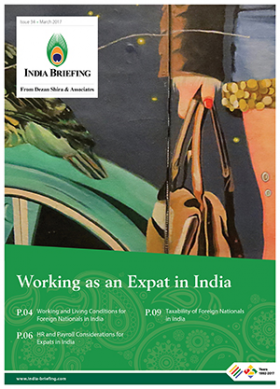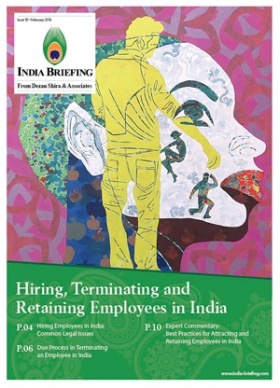Maharashtra Shops and Establishments Rules, 2018 Explained
The Indian state of Maharashtra has notified the rules for implementing its Shops and Establishment Act of 2017.
Notified on March 23, the Maharashtra Shops and Establishments (Regulation of Employment and Conditions of Service) Rules, 2018 replaces the erstwhile Maharashtra Shops and Establishments Rules, 1961.
The Rules are applicable to all commercial establishments in the state, (not covered under the Factories Act), which employ 10 or more workers.
A draft of the 2018 Rules were put out for public comments only in February this year and was finalized in less than two months.
The 2018 Rules will ease doing business in Maharashtra: it promotes transparency, brings clarity to the implementation of the state’s Shops and Establishment Act, introduces ease of compliance, and mandates reforms for workplace safety and welfare, especially for women workers.
We previously explained the Maharashtra Shops and Establishments (Regulation of Employment and Conditions of Service) Act, 2017. (A copy of the law may be accessed here.)
In this article, we will discuss important aspects of the 2018 Rules, including key regulatory changes introduced after feedback on the February draft.
Fees
There will be no fees charged for the following: application for registration, renewal of certificate of registration, and changes in the certificate of registration.
However, the employer may have to pay the electronic transaction or service charges as periodically fixed by the state government for availing e-services under the 2017 Act and the 2018 Rules.
Complaint box and display of numbers
This is a new requirement introduced under the official 2018 Rules upon receiving feedback from stakeholders.
Every employer must maintain a complaint box and display the phone numbers of the local police station, police control room, and women area helpline prominently in the establishment.
Hiring women security guards
Employing woman security guards is now mandatory in establishments employing not less than 10 women workers. The 2018 Rules specify the number of such security guards required, depending on the size of the workforce.
The establishment must also undertake mandatory police verification of the candidates who are recruited as women security guards.
Additional paid holiday for women workers
Every women worker who works during the night as per her shift schedule is entitled to one additional paid holiday for every two months in a year.
Maternity leave for night shift workers
The Rules provide that women workers cannot work night shifts during a period of 24 weeks before and after child birth, of which at least 12 weeks must be before childbirth, and any further period that as may be specified in her medical certificate.
Safety of women in the workplace
Every employer has to submit an annual undertaking stating their provision of all the facilities mentioned under Rule 13 of the 2018 Rules. These include conditions for the employment of women in general as well as during night shifts.
Part time employment
Wages payable to a part time worker is calculated by dividing the per day rate of ‘minimum wages’ applicable to that category of employment by eight hours plus a fifteen percent rise on it or by dividing the prevailing daily wage rate for permanent workers doing similar nature of work in that establishment by eight hours plus a fifteen percent rise on it, whichever is higher.
No part time worker should be allowed to work overtime under any circumstances. This is to prevent the misuse or exploitation of part time workers.
Health, Safety, and Welfare Committee
A Health, Safety and Welfare Committee must be formed in establishments with 10 or more workers, under the 2018 Rules; it should consist of an equal number of employer and worker representatives, respectively.
The committee must also have a sufficient number of women representatives, wherever women workers are employed.
Fire and safety framework
Every employer has to adopt and implement all the safety measures mentioned, suggested, and recommended in the government’s Fire and Safety Policy, which may be further updated periodically.
Preservation of records
Every employer or manager must preserve the inspection records of the local facilitator (official seeking compliance) for a period of three years.
Filing annual return
Every employer must upload the annual return online in Form ‘R’ on the website within two months for the year ending on December 31, instead of the financial year ending on March 31.
Here procedural clarity is still awaited.
Penalty on compounding of offence
The maximum fees for compounding of an offence (making a settlement to avoid prosecution) may be imposed by the compounding officer shall not be less than 50 percent of the maximum fine specified for such offence under the 2017 Act.
Information regarding persons discharging managerial function
This relates to the information provided to the facilitator in Form ‘T’ on the names, designation, and brief nature of the duties of persons who perform management functions. It must be submitted annually and whenever there is any change, during the year.
Information regarding persons doing confidential work
The information in Form ‘U’ relates to the names of persons who provide confidential information to the establishment. This needs to be submitted annually and whenever there is any change, during the year.
About Us
India Briefing is published by Asia Briefing, a subsidiary of Dezan Shira & Associates. We produce material for foreign investors throughout Eurasia, including ASEAN, China, Indonesia, Russia, the Silk Road, & Vietnam. For editorial matters please contact us here and for a complimentary subscription to our products, please click here.
Dezan Shira & Associates provide business intelligence, due diligence, legal, tax and advisory services throughout India and the Asian region. We maintain offices in Delhi and Mumbai and throughout China, South-East Asia, India, and Russia. For assistance with India investment issues or into Asia overall, please contact us at india@dezshira.com or visit us at www.dezshira.com.
- Previous Article Modi Attends CHOGM Summit: UK-India Trade and Investment after Brexit Top Agenda
- Next Article India’s Auto Component Industry: Investment Incentives by Location












